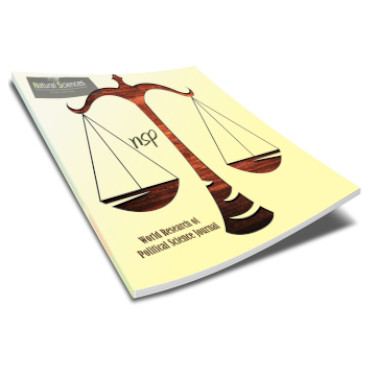
The World Research of Political Science Journal
Abstract
On March 2011, A boat-carrying 72 migrants- was heading to Italy. Two weeks after leaving the Libyan shores, 62 of the boat’s passengers lost their lives in the Mediterranean before reaching their destination. Deep investigations of the incident, the boat’s route, and the reactions of the actors involved raise many ethical questions pertaining to issues of international responsibility, and moral obligations. With reflections on normative theory in international relations, the present paper aims to shed light on some of these ethical dimensions. The paper argues that the states involved in this incident failed to take the ethical decision needed to save the lives of the passengers which was demonstrated in firstly, their failure to abide by the settled human rights norms, and secondly, their violation of the cosmopolitan perspective– expected to be observed in this incident. Following the analytical logic and the division that Toni Erskine’s adopted when analyzing the case of ‘civilians killed at a checkpoint in Iraq 2003’, the paper is divided into three sections: the first section highlights how coastal states involved in this incident–namely Italy and Malta– although did not violate their legal obligations under the Law of the sea– failed to take an ethical decision of rescuing the migrants and failed to abide by settled human rights norms. The second section draws on the theory’s moral categories: cosmopolitanism and communitarianism as useful analytical categories in understanding the inaction of the states involved and their scope of obligation. The third section concludes by examining the question of ‘who is responsible’, placing moral responsibility on nearly all actors/moral agents involved in this incident.
Recommended Citation
Mohamed Mosaad Hussein, Fatemah
(2023)
"The 2011 ‘Left-to-Die Boat’ Incident: Reflections on Normative International Relations Theory,"
The World Research of Political Science Journal: Vol. 6:
Iss.
1, Article 6.
Available at:
https://digitalcommons.aaru.edu.jo/wrpsj/vol6/iss1/6

